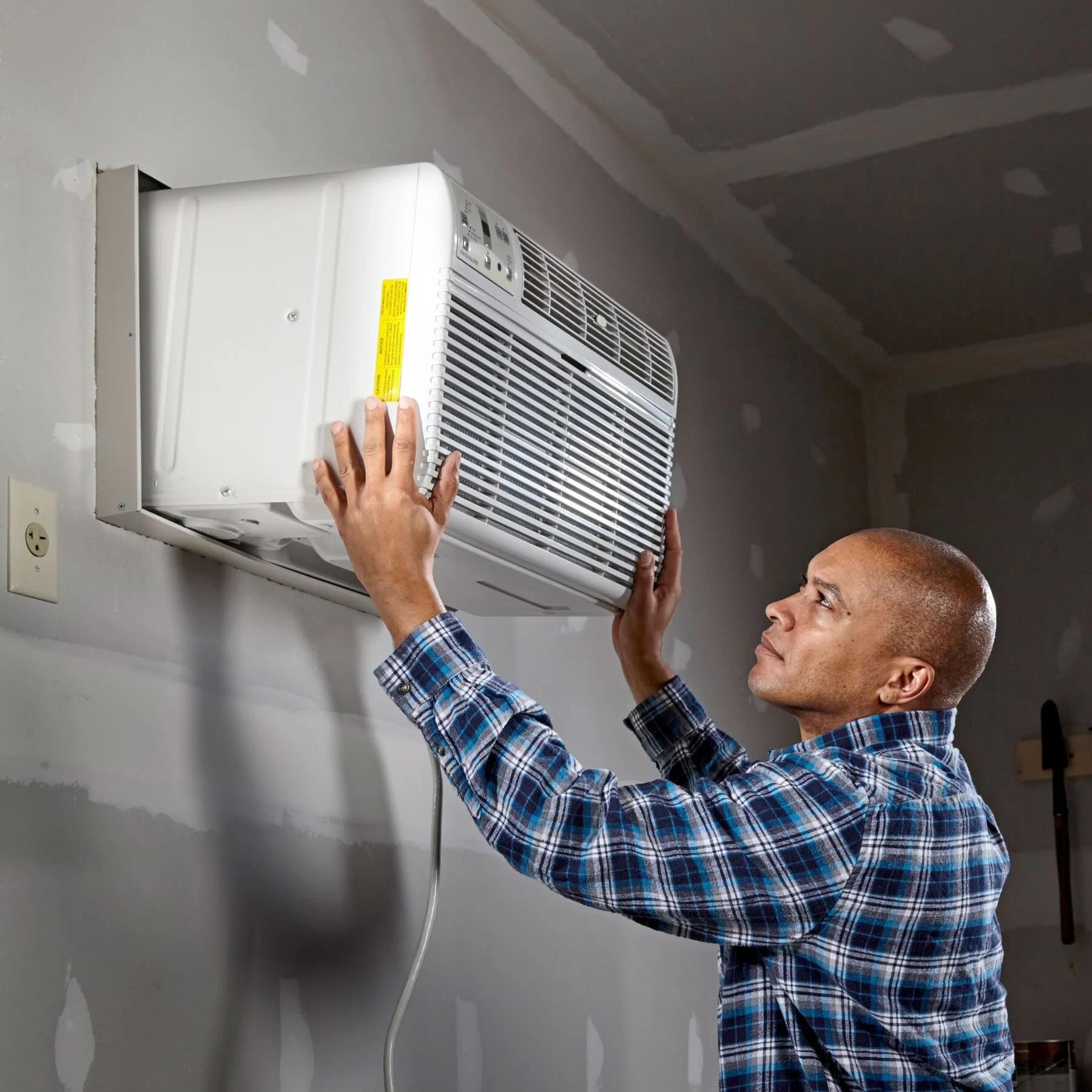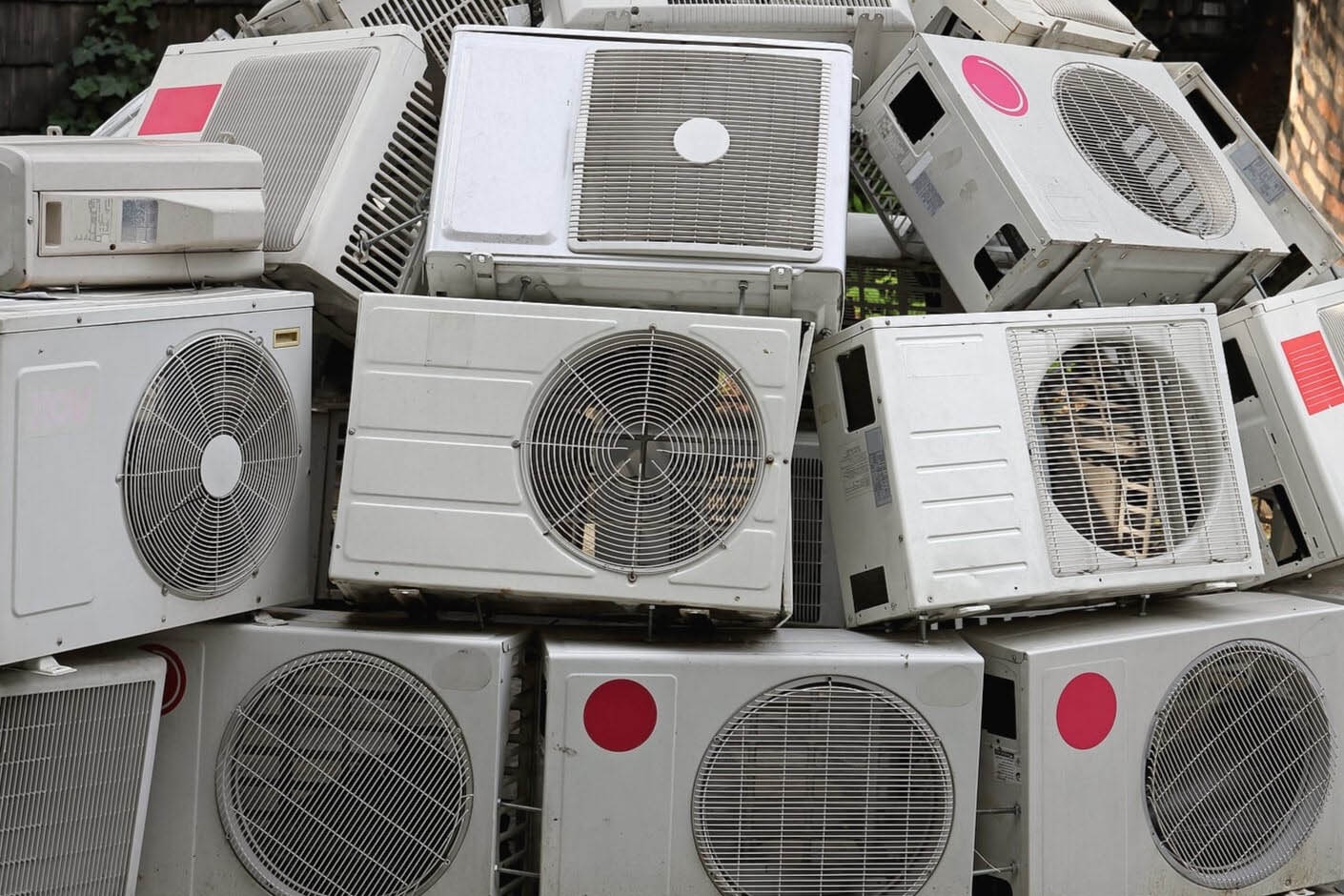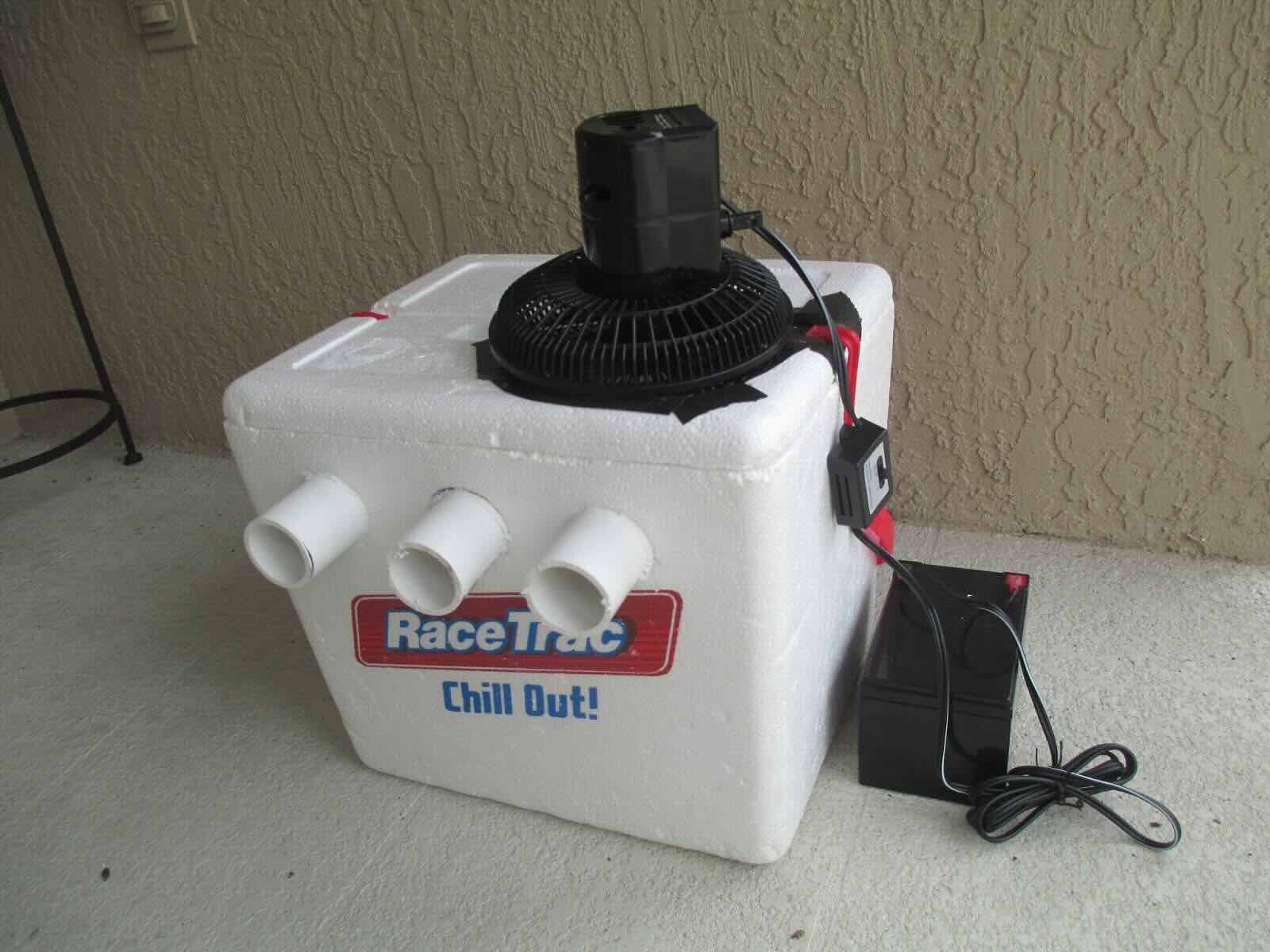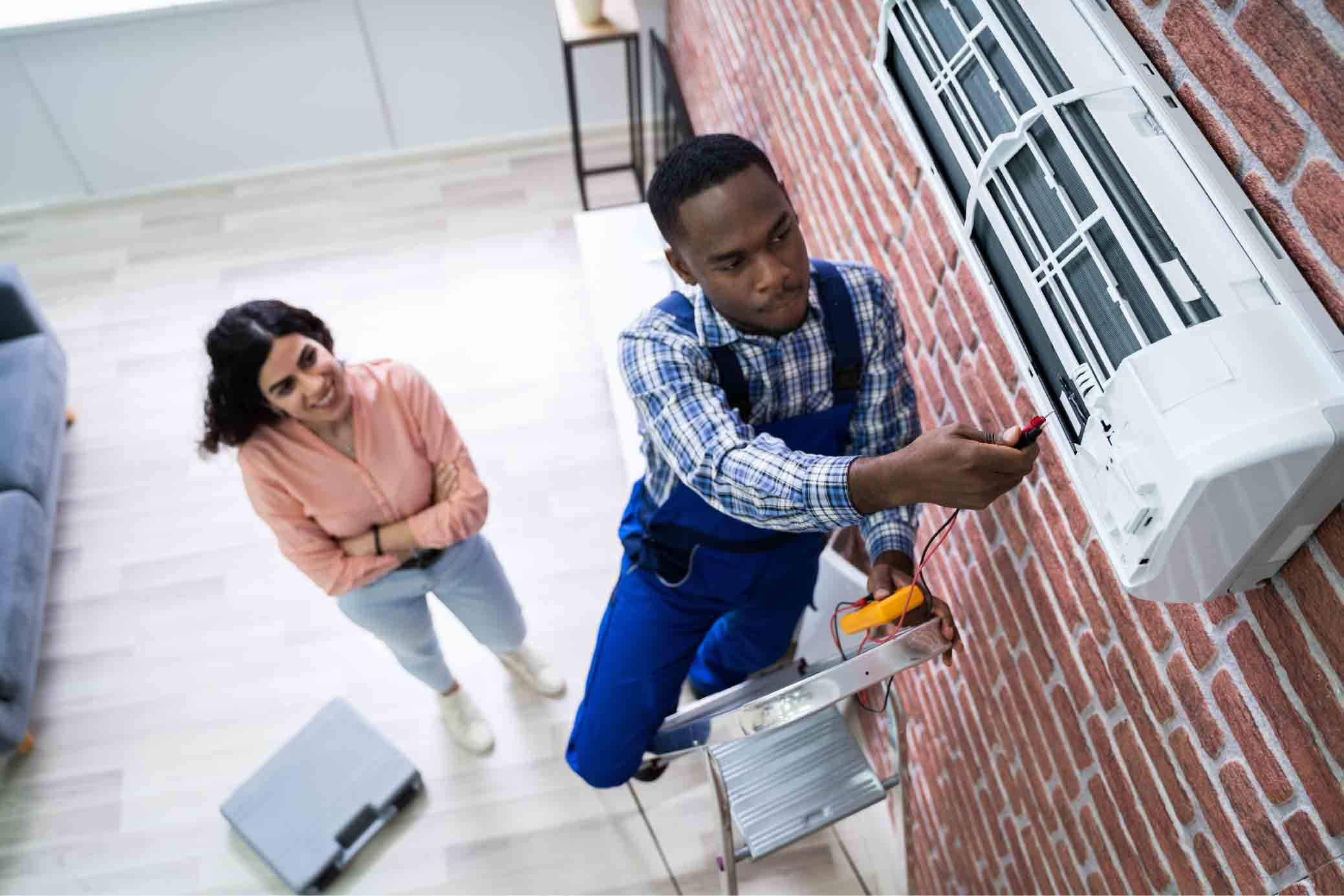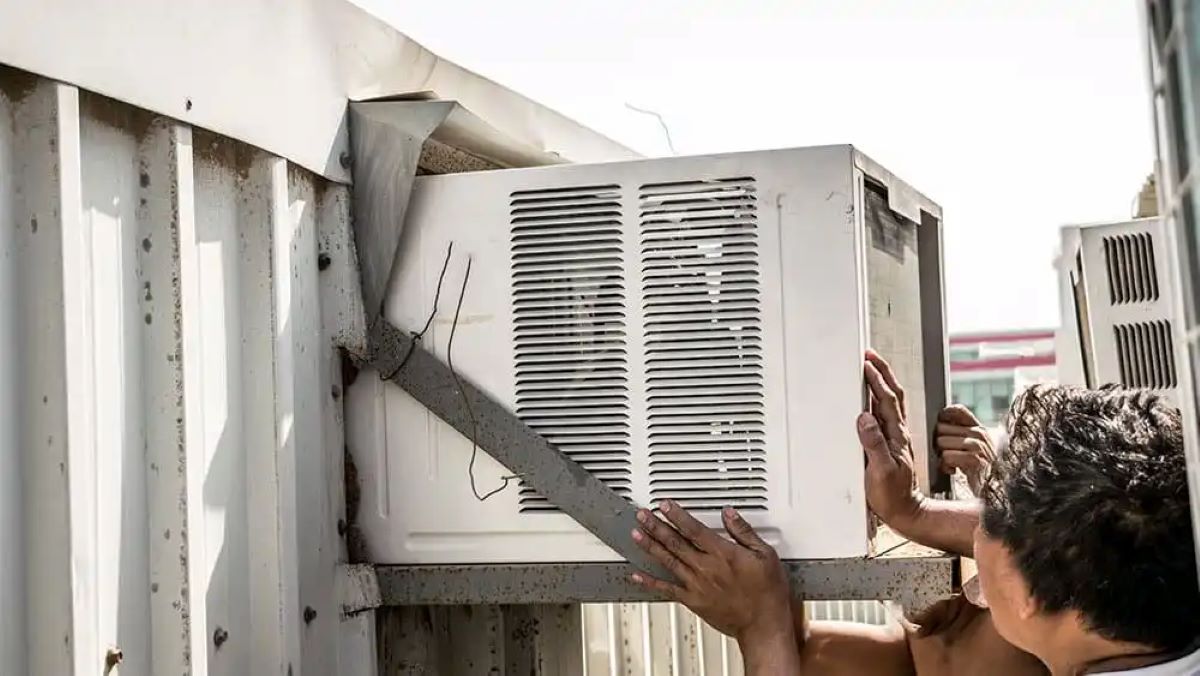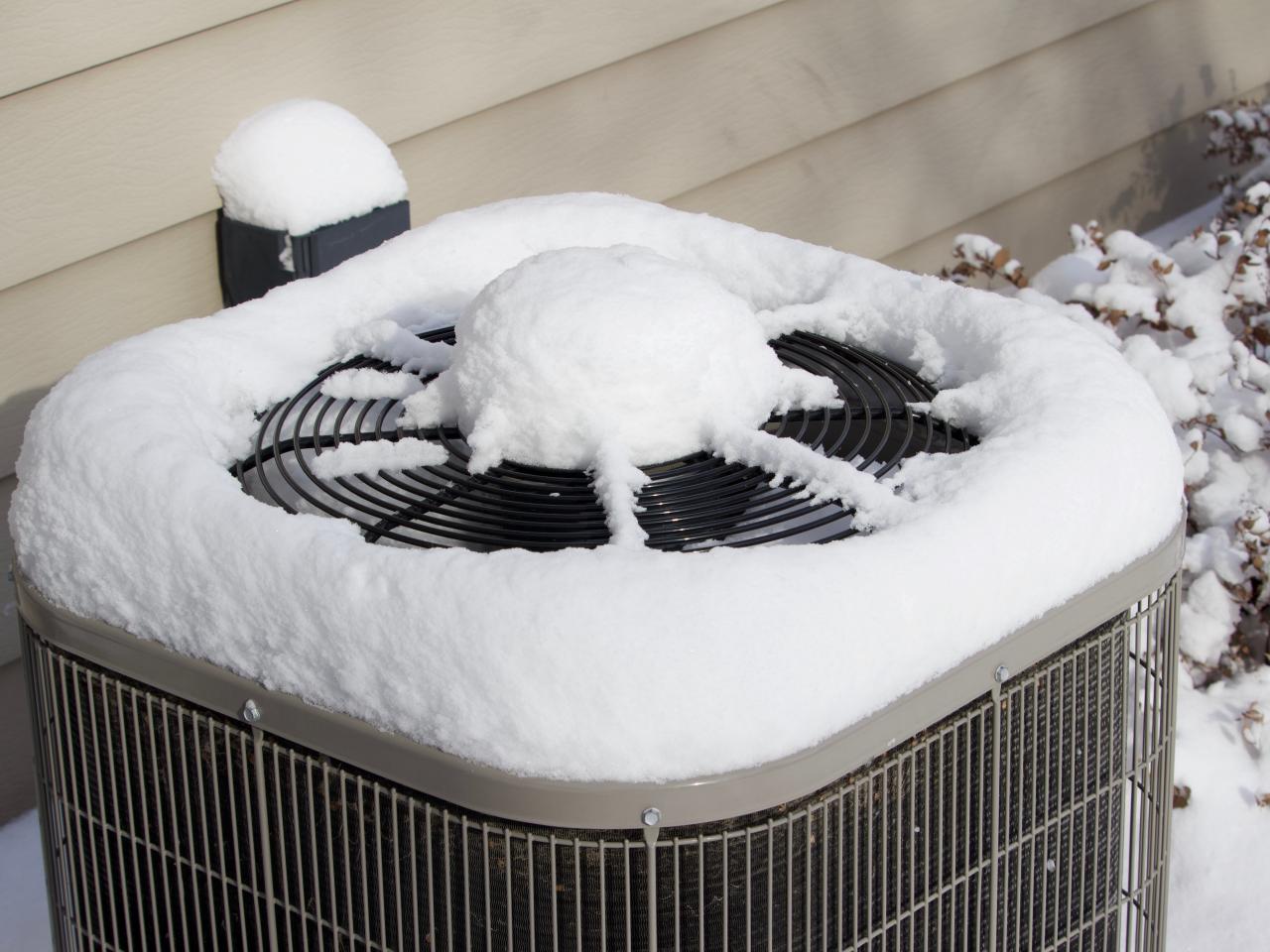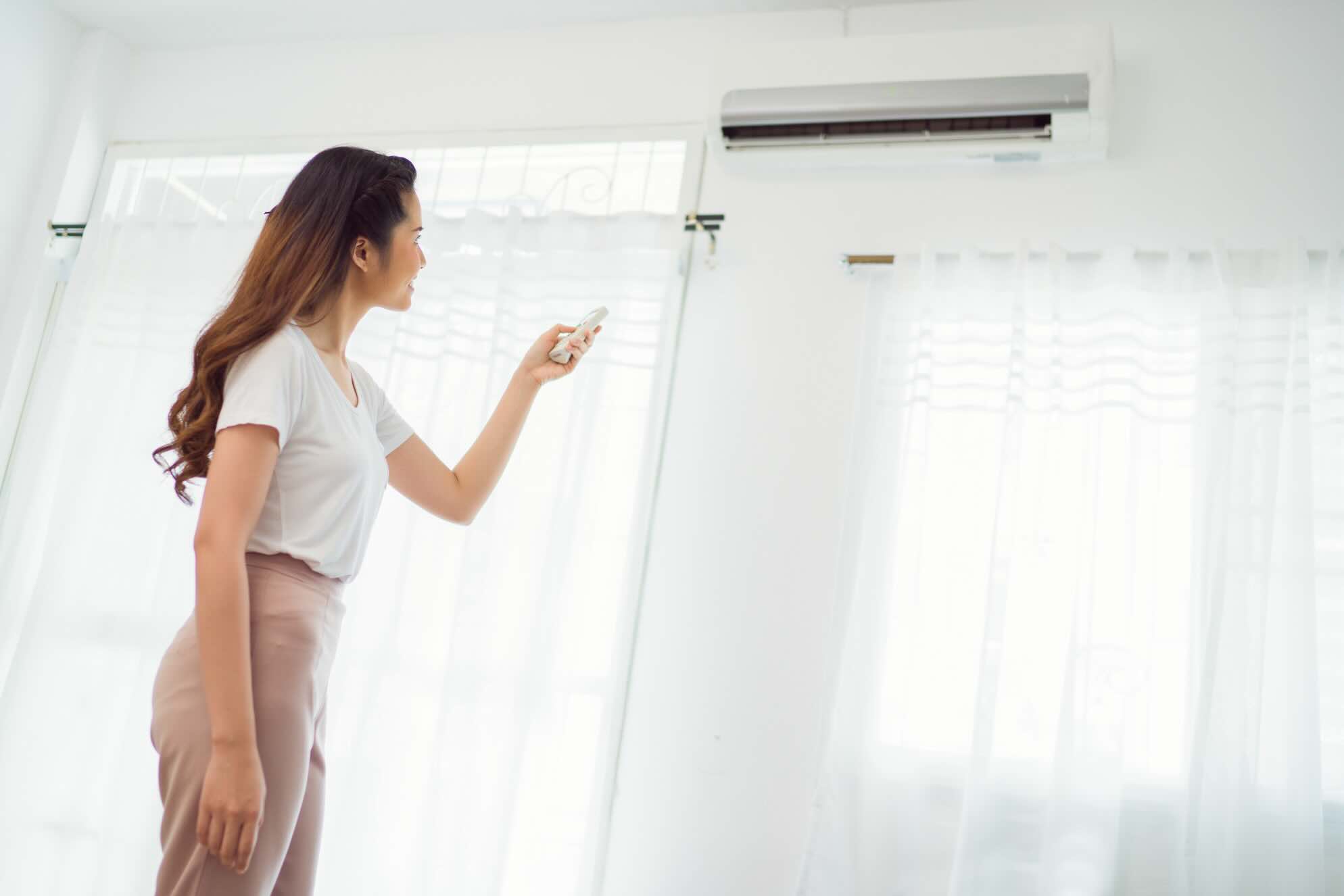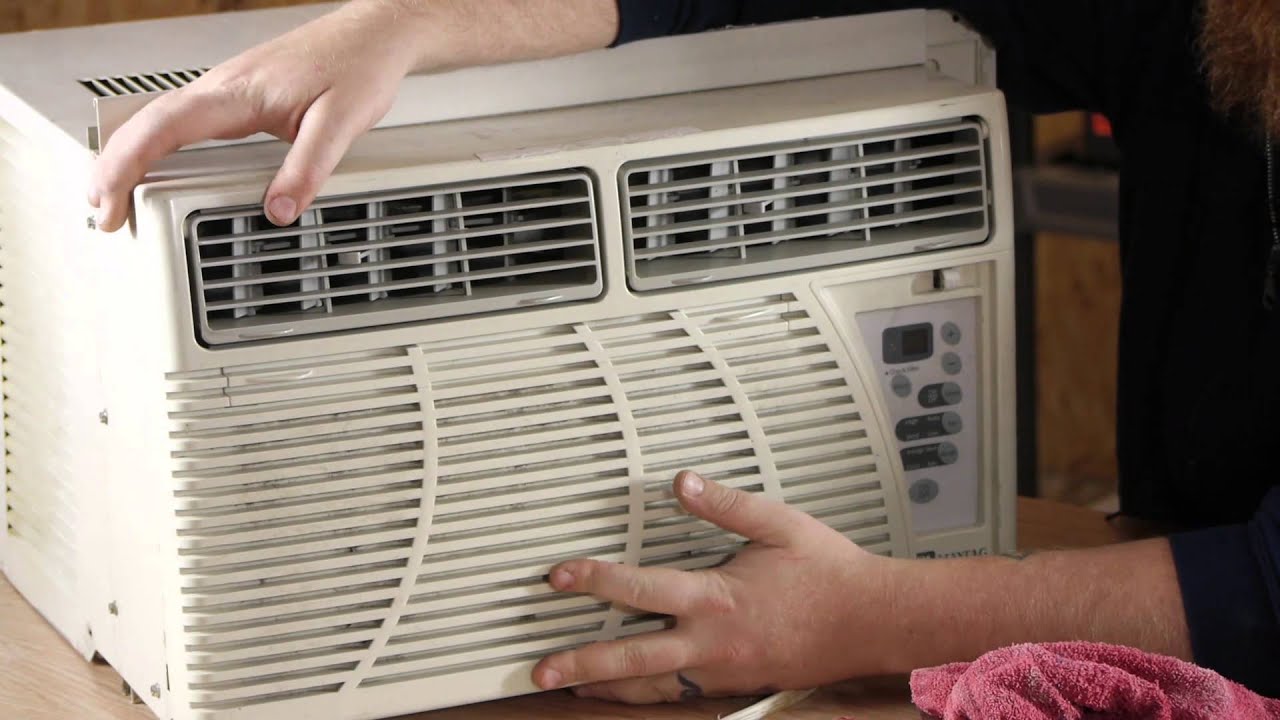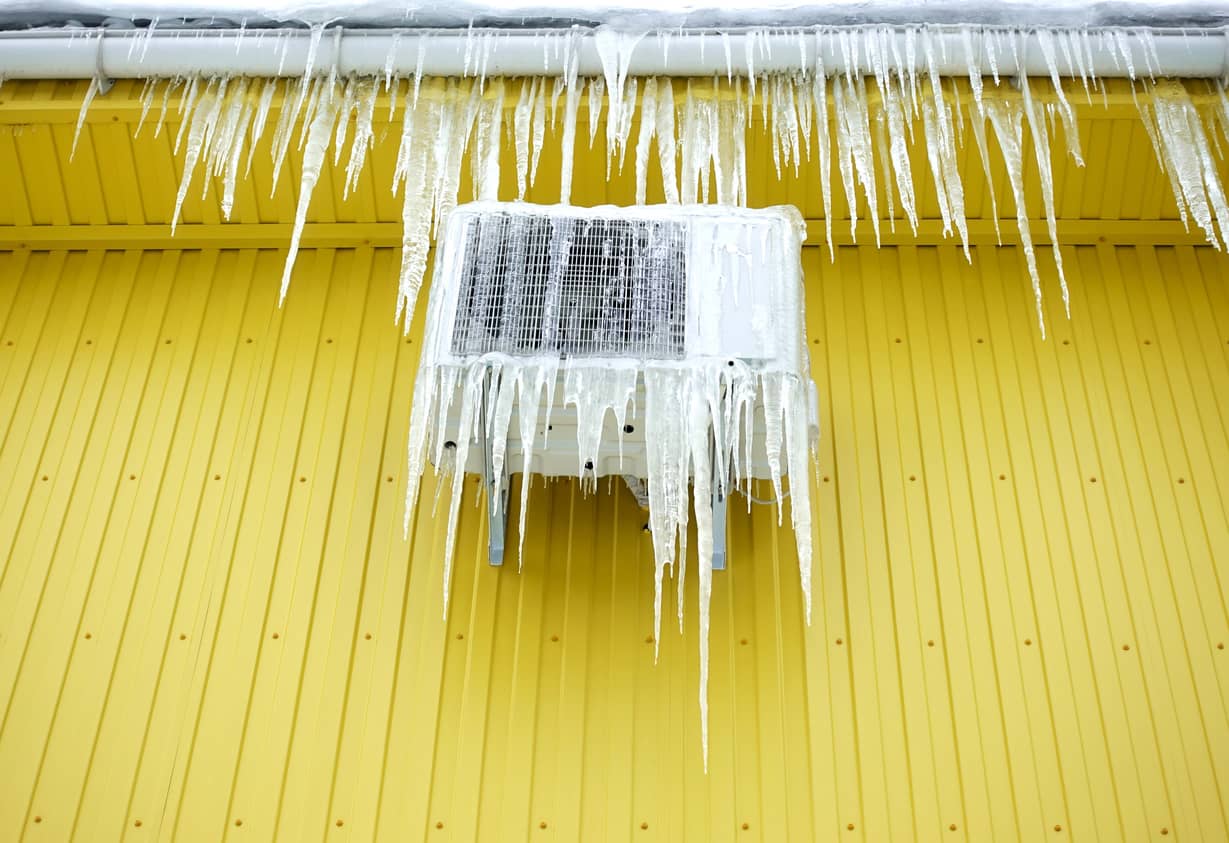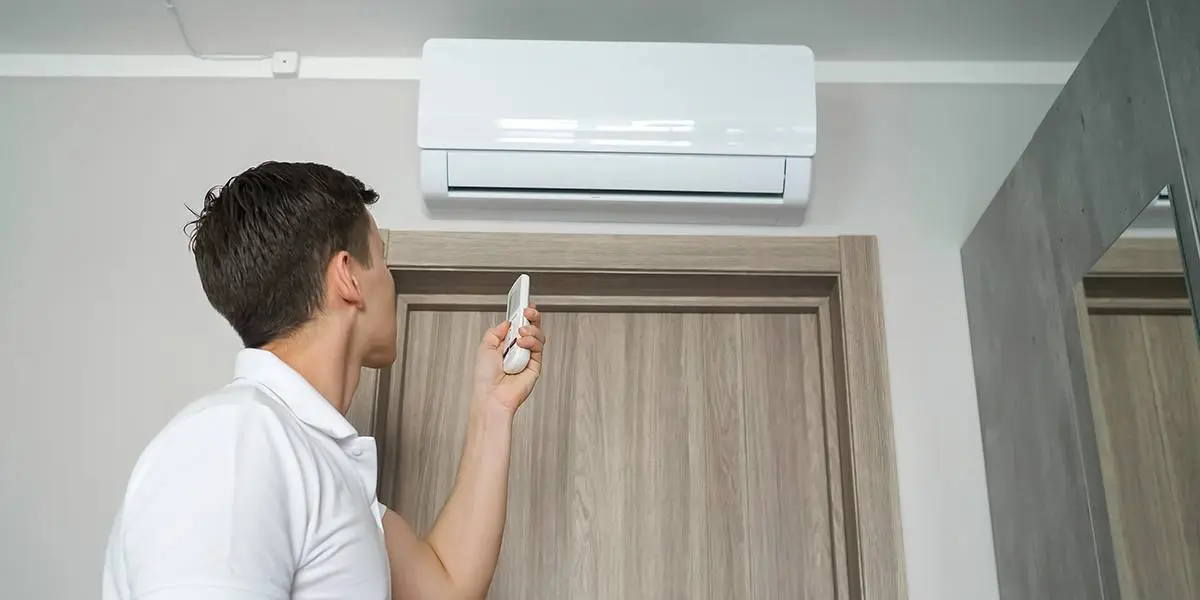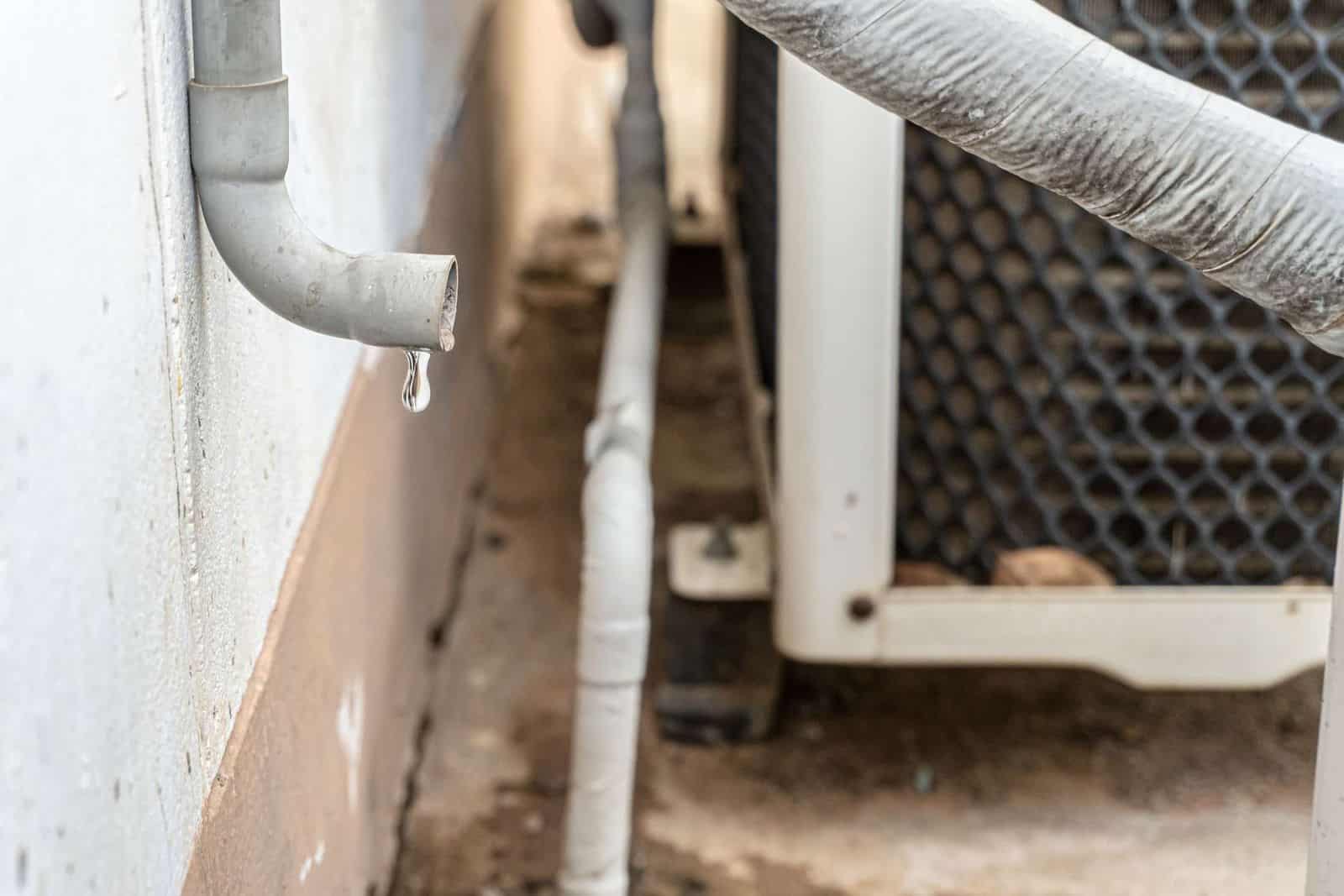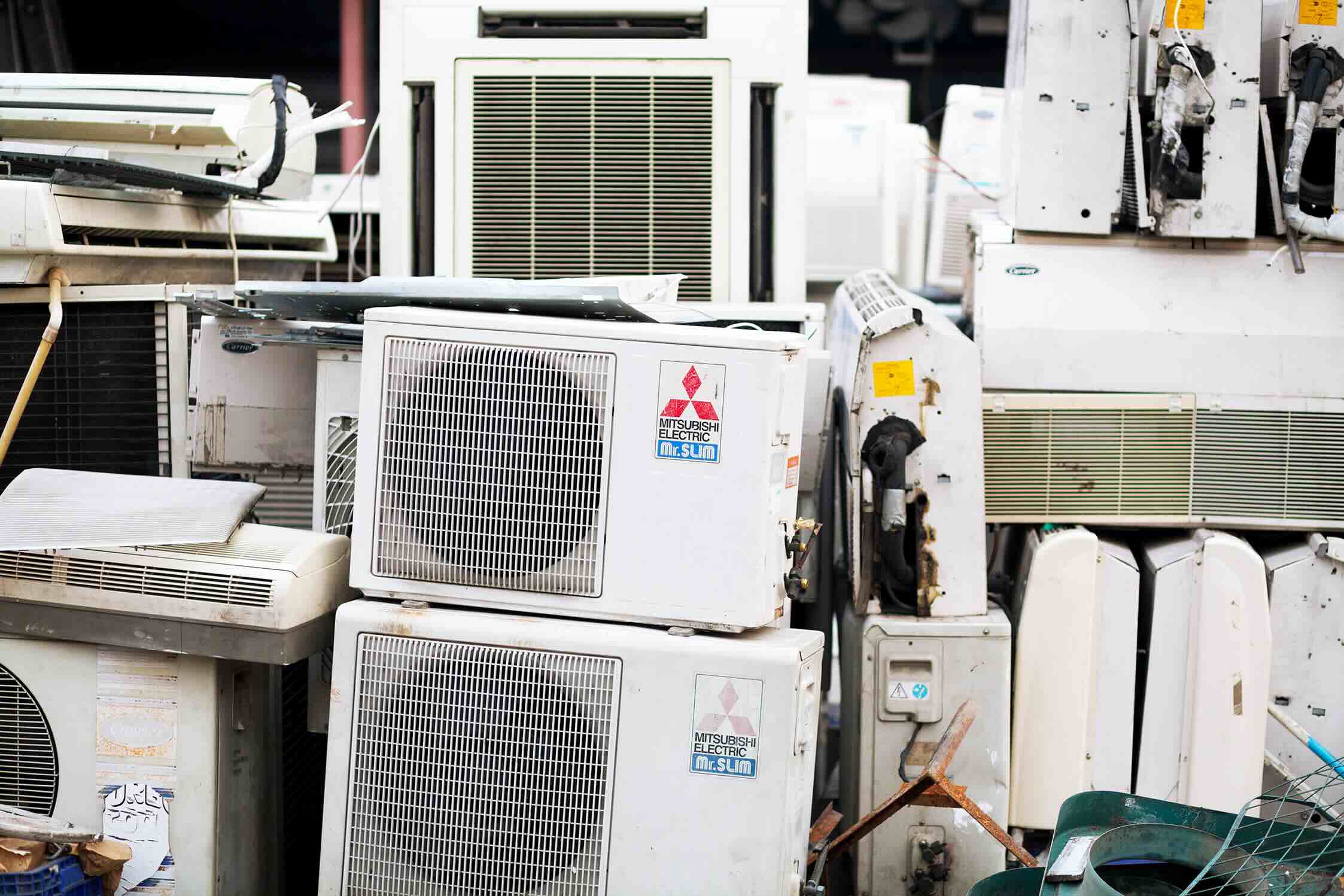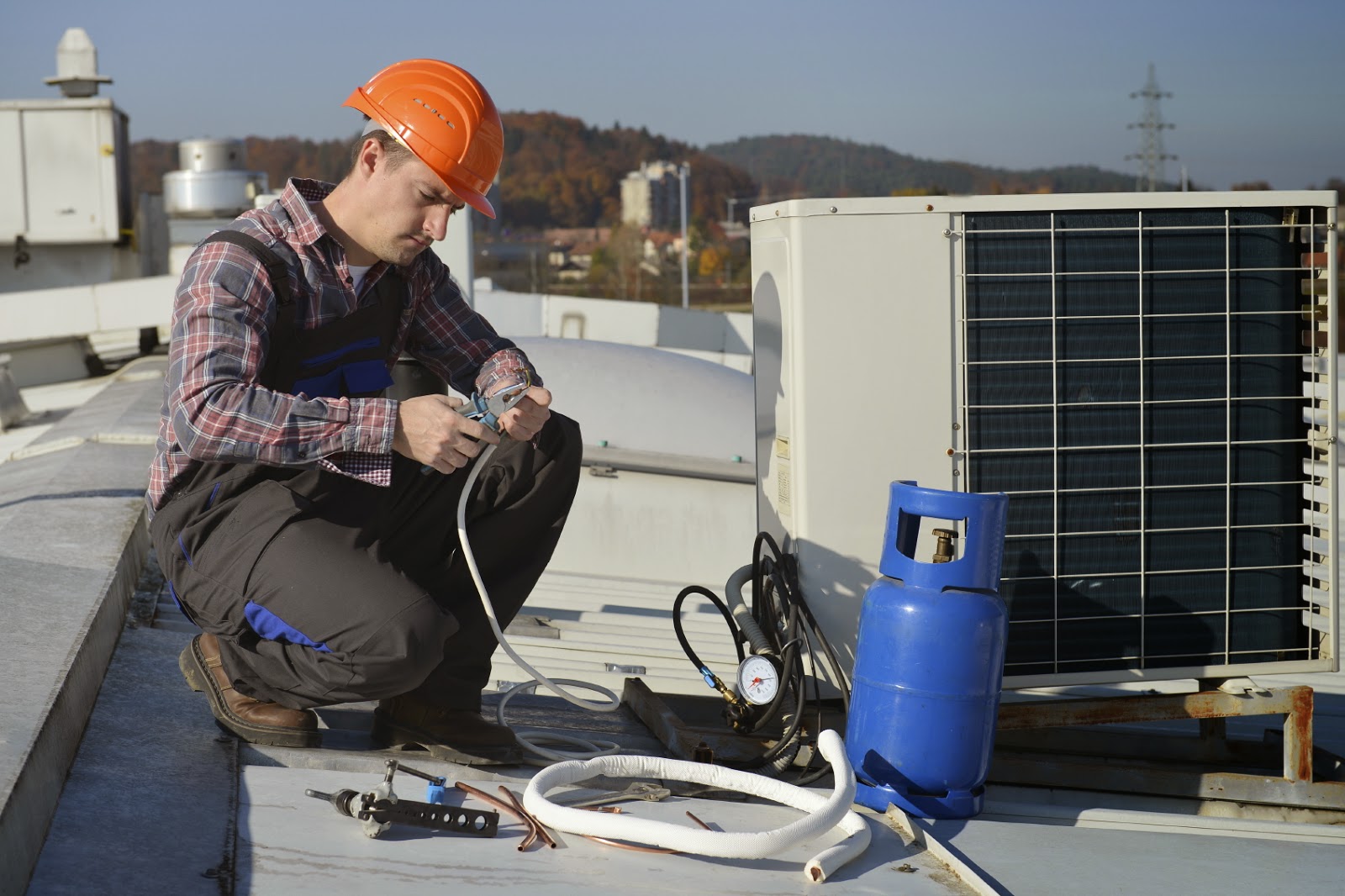Home>Home Maintenance>How To Choose An Air Conditioner
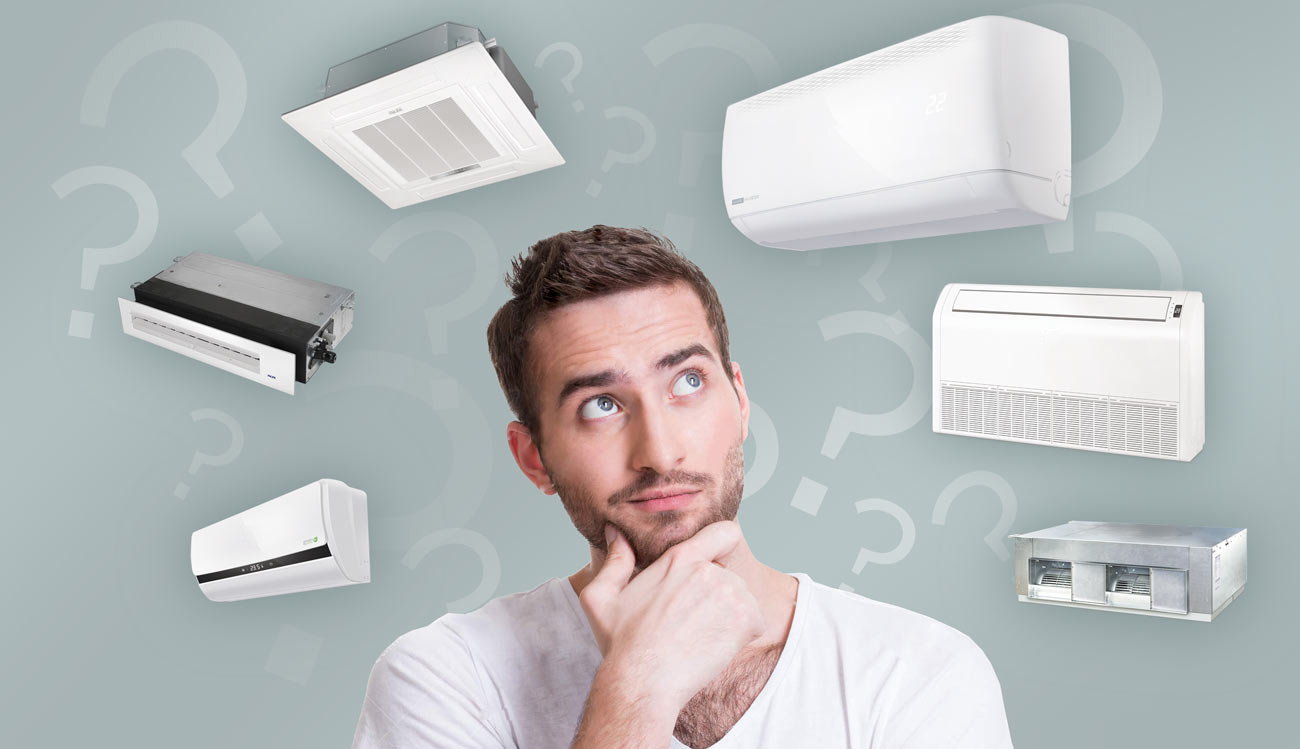

Home Maintenance
How To Choose An Air Conditioner
Modified: March 7, 2024
Learn how to choose the perfect air conditioner for your home maintenance needs. Discover the key factors to consider and make a smart and efficient choice.
(Many of the links in this article redirect to a specific reviewed product. Your purchase of these products through affiliate links helps to generate commission for Storables.com, at no extra cost. Learn more)
Introduction
Welcome to the world of home maintenance! One of the most crucial aspects of keeping your home comfortable during hot summer months is investing in a reliable air conditioner. With so many options available on the market, choosing the right one for your home can be overwhelming. But fear not! In this article, we will guide you through the process of selecting the perfect air conditioner to meet your cooling needs.
When it comes to choosing an air conditioner, there are several factors to consider. These factors include cooling capacity, energy efficiency, type of air conditioner, installation requirements, noise level, additional features, maintenance and repair, and cost considerations. By understanding these factors and their importance, you will be equipped with the knowledge needed to make an informed decision.
So, grab a cool drink, sit back, and let’s dive into the world of air conditioners!
Key Takeaways:
- Choose the right air conditioner by considering factors like room size, energy efficiency, installation, and noise level. This ensures optimal cooling and cost-effectiveness for a comfortable home.
- Regular maintenance and timely repairs are essential for keeping your air conditioner efficient and long-lasting. Consider energy efficiency and upfront costs to make a well-informed decision.
Read more: How To Choose A Central Air Conditioner
Factors to Consider
When selecting an air conditioner for your home, it is important to take various factors into consideration. These factors will help you determine the most suitable option that aligns with your specific needs and preferences.
1. Cooling Capacity: The cooling capacity of an air conditioner is measured in British Thermal Units (BTUs). It determines how effectively the unit can cool a specific area. It is crucial to choose an air conditioner with appropriate cooling capacity to ensure optimal performance. I’ll provide a general guideline for calculating the required cooling capacity:
- For small rooms (up to 150 square feet), a unit with 5,000-6,000 BTUs is sufficient.
- For medium-sized rooms (150-350 square feet), opt for an air conditioner with 7,000-8,000 BTUs.
- For larger areas (350-550 square feet), consider a unit with 9,000-12,000 BTUs.
- For spaces over 550 square feet, consult with a professional to determine the appropriate cooling capacity.
Keep in mind that choosing an air conditioner with a higher cooling capacity than necessary may result in inefficiency and higher energy consumption.
2. Energy Efficiency: Energy efficiency is a crucial factor to consider, both for the sake of the environment and your utility bills. Look for an air conditioner with a high Seasonal Energy Efficiency Ratio (SEER) rating. The higher the rating, the more energy-efficient the unit is. Energy-efficient models may have a higher upfront cost, but they will save you money in the long run by reducing energy consumption.
3. Type of Air Conditioner: There are several types of air conditioners to choose from, including:
- Window Units: These are self-contained units that are installed in a window or a pre-cut hole in the wall. They are suitable for individual rooms and apartments with windows.
- Split Systems: Consisting of an indoor and an outdoor unit, split systems offer flexibility and the ability to cool multiple rooms. They require professional installation.
- Portable Air Conditioners: These units are easy to move around and do not require installation. They are a good option for rooms without windows or apartments with strict window restrictions.
- Ducted Systems: Ideal for large homes, ducted systems distribute cool air through ductwork hidden in the walls or ceiling. They provide consistent cooling but require professional installation.
Consider the layout and size of your home to determine which type of air conditioner will best suit your needs.
4. Installation Requirements: Depending on the type of air conditioner, installation requirements vary. Window units and portable air conditioners are relatively easier to install, requiring minimal setup. Split systems and ducted systems, on the other hand, require professional installation. Ensure that you have the necessary space and electrical requirements for your chosen unit.
5. Noise Level: Air conditioners can produce varying levels of noise. If you are sensitive to noise or plan to install the unit in a bedroom or study, look for models with a low noise level. Check the product specifications or read customer reviews to gauge the noise performance of the air conditioner.
Remember to take these factors into account when choosing an air conditioner for your home. By doing so, you will be well on your way to enjoying a cool and comfortable living environment!
Cooling Capacity
When it comes to choosing an air conditioner, one of the most important factors to consider is the cooling capacity. The cooling capacity of an air conditioner determines its ability to effectively cool a specific area.
The measurement unit for cooling capacity is British Thermal Units (BTUs), which indicates the amount of heat an air conditioner can remove from a room per hour. It is crucial to select an air conditioner with the appropriate cooling capacity to ensure optimal performance.
Calculating the required cooling capacity for your space is relatively straightforward. Here’s a general guideline to help you determine the BTU rating you need:
- Small Rooms (up to 150 square feet): For rooms of this size, an air conditioner with a cooling capacity of 5,000 to 6,000 BTUs should be sufficient.
- Medium-sized Rooms (150-350 square feet): For rooms within this range, aim for an air conditioner with a cooling capacity of 7,000 to 8,000 BTUs.
- Larger Areas (350-550 square feet): If you’re looking to cool a larger space, consider an air conditioner with a cooling capacity of 9,000 to 12,000 BTUs.
- Spaces over 550 square feet: For areas exceeding 550 square feet, it’s advisable to consult with a professional to determine the appropriate cooling capacity based on factors such as room layout, insulation, and geographical location.
Keep in mind that choosing an air conditioner with a higher cooling capacity than necessary may result in inefficiency and higher energy consumption. On the other hand, selecting a unit with insufficient cooling capacity may struggle to provide adequate cooling, leading to discomfort in your home.
Factors such as room size, ceiling height, insulation, and the number of occupants also impact the cooling capacity requirements. If your room has high ceilings, poor insulation, or frequently experiences excessive heat, you may need to opt for an air conditioner with a higher BTU rating to compensate for these additional factors.
It’s important to note that other factors, like climate and sunlight exposure, should also be considered when determining the appropriate cooling capacity. Homes located in hotter climates or receiving high levels of direct sunlight may require an air conditioner with a higher cooling capacity to effectively cool the space.
By understanding and evaluating the cooling capacity needed for your home, you can select an air conditioner that will provide optimal cooling performance, ensuring a comfortable living environment during those hot summer months.
Energy Efficiency
When selecting an air conditioner for your home, energy efficiency is a crucial factor to consider. An energy-efficient air conditioner not only benefits the environment but also saves you money on your utility bills in the long run. By choosing a unit with a high Seasonal Energy Efficiency Ratio (SEER) rating, you can ensure that your air conditioner operates efficiently and minimizes energy consumption.
The SEER rating is a measure of an air conditioner’s efficiency in converting electrical energy into cooling output over an entire cooling season. The higher the SEER rating, the more energy-efficient the unit is.
When comparing different air conditioner models, look for units with SEER ratings of 14 or higher. While more efficient models may have a higher upfront cost, their lower energy consumption can result in significant savings over time.
Choosing an energy-efficient air conditioner not only saves you money but also contributes to reducing greenhouse gas emissions. By reducing your energy consumption, you help mitigate the impact of air conditioning on climate change.
Here are a few tips to enhance the energy efficiency of your air conditioner:
- Proper Sizing: Ensure that your air conditioner is appropriately sized for your space. An oversized unit can lead to inefficient cooling and frequent on-off cycling, while an undersized unit may struggle to cool your home adequately. Consulting with a professional can help you determine the right size for your needs.
- Regular Maintenance: Schedule regular maintenance for your air conditioner to keep it in optimal working condition. Clean or replace air filters regularly, and remove any debris or obstructions from the unit. A well-maintained air conditioner performs more efficiently.
- Smart Thermostat: Consider installing a programmable or smart thermostat. These devices allow you to set temperature schedules to optimize energy usage. You can program the thermostat to increase the temperature when you’re away or asleep, saving energy while still maintaining comfort.
- Sealing and Insulation: Ensure that your home is properly sealed to prevent cool air from escaping and hot air from entering. Proper insulation helps maintain a consistent temperature and reduces the need for excessive cooling.
By choosing an energy-efficient air conditioner and implementing these energy-saving practices, you can enjoy a cool and comfortable home while minimizing your environmental impact and saving on energy costs.
Type of Air Conditioner
When it comes to selecting an air conditioner for your home, there are several types to choose from. Each type has its own advantages and considerations, so it’s important to understand the differences and determine which one best suits your specific needs.
- Window Units: Window units are one of the most common and affordable types of air conditioners. These self-contained units are installed in a window or a pre-cut hole in the wall. They are suitable for cooling individual rooms or small spaces. Window units are relatively easy to install and operate, making them a popular choice for apartments or rooms without central air conditioning.
- Split Systems: Split systems consist of two components: an indoor unit and an outdoor unit. The indoor unit is typically mounted on a wall or ceiling, while the outdoor unit is placed outside the home. Split systems offer more flexibility as they can cool multiple rooms or specific zones within a home. They are quieter than window units and often come with additional features such as remote control and programmable settings. Installation of a split system requires professional assistance.
- Portable Air Conditioners: Portable air conditioners offer flexibility and convenience as they can be moved from room to room as needed. These units do not require permanent installation and can be vented through a window or a venting kit. Portable air conditioners are a good option for rooms without windows or apartments with strict window restrictions, providing cooling wherever you need it most.
- Ducted Systems: Ducted air conditioning systems are designed to cool the entire home or multiple rooms using a network of ducts hidden in the walls or ceiling. These systems offer centralized cooling and provide consistent temperature control throughout the house. Ducted systems require professional installation, as they involve complex ductwork and zoning controls.
When deciding on the type of air conditioner, consider factors such as the layout and size of your home, your budget, and any specific requirements or restrictions. Each type of system has its own installation requirements, so it’s important to assess if your home is compatible with the chosen system.
It’s worth noting that advancements in technology have brought about smart air conditioning systems that can be controlled remotely through smartphones or voice assistants. These smart systems offer convenience and energy-saving features, allowing you to adjust settings and monitor energy usage from anywhere.
By understanding the different types of air conditioners and their features, you can make an informed decision and choose the system that best suits your home’s cooling needs and your personal preferences.
Read more: How To Refill An Air Conditioner
Installation Requirements
When it comes to installing an air conditioner, different types of units have varying installation requirements. Understanding these requirements is crucial to ensure proper functionality and optimal performance of the system. Let’s explore some common installation considerations for different types of air conditioners.
- Window Units: Installing window units is relatively straightforward. These units are designed to fit into a window or a pre-cut hole in the wall. Make sure to measure the window opening accurately to determine the compatibility and proper fit of the unit. Window units require a stable window frame or support bracket to hold the unit securely in place.
- Split Systems: Installation of split systems is more complex and requires professional assistance. The indoor unit is typically mounted on a wall or ceiling, while the outdoor unit is placed outside the home. For optimal performance, the indoor and outdoor units should be positioned correctly and adequately spaced. Refrigerant lines and electrical connections need to be properly installed and insulated. Professional installers will ensure that the system is correctly charged with refrigerant and all connections are secure.
- Portable Air Conditioners: Portable air conditioners are the most flexible in terms of installation. They do not require permanent installation, but they do need proper venting for hot air discharge. Portable air conditioners come with a window venting kit or an exhaust hose that can be connected to a window, a drop ceiling, or a vent. Ensure that you have a suitable location near a window or an opening for venting the hot air.
- Ducted Systems: Installation of ducted air conditioning systems involves complex ductwork and requires professional expertise. Ductwork is hidden in the walls or ceiling, and vents or registers are strategically placed throughout the home for efficient cooling. The installation process includes designing the duct layout, installing the indoor and outdoor units, and connecting the ducts to deliver cool air to different zones or rooms. Professional installers make sure that the ducts are sealed properly to prevent air leaks that can reduce system efficiency.
It is important to note that regardless of the type of air conditioner, installation should comply with local building codes and regulations. It is highly recommended to hire a professional installer who has experience and knowledge in handling the specific type of air conditioner you have chosen.
Before installation, it is also important to consider electrical requirements. Ensure that your home’s electrical system can handle the power needs of the air conditioner. In some cases, you may need to upgrade the electrical panel or hire an electrician to install a dedicated circuit for the air conditioner.
By following the manufacturer’s guidelines and seeking professional assistance when necessary, you can ensure a proper and efficient installation of your chosen air conditioning system, allowing you to enjoy the comfort and cooling benefits it provides.
When choosing an air conditioner, make sure to consider the size of the room you want to cool. A unit that is too small won’t effectively cool the space, while a unit that is too large will use more energy and may not remove enough humidity from the air.
Noise Level
When choosing an air conditioner for your home, the noise level is an important factor to consider, especially if you plan to install the unit in a bedroom, study, or any other area where silence is desired. The noise produced by an air conditioner is measured in decibels (dB), and it varies depending on the type and model of the unit.
Air conditioners can produce noise from various sources, including the compressors, fans, and airflow through the ducts. While it’s challenging to find an air conditioner that is completely silent, there are models available that prioritize reduced noise levels.
When researching air conditioner options, it’s helpful to look for the manufacturer’s specifications or customer reviews that mention noise levels. Some units come with special features, such as noise-reducing technology or insulated cabinets, to minimize the noise emitted during operation.
Here are a few factors to consider when evaluating the noise level of an air conditioner:
- Decibel Rating: Air conditioners typically have a decibel rating mentioned in their specifications. This rating indicates the noise level produced by the unit. The lower the decibel rating, the quieter the operation.
- Distance from Occupied Areas: Consider the proximity of the air conditioner to areas where people spend the most time. If the unit will be placed near a frequently occupied room, such as a bedroom, look for a model with a lower noise level to minimize disturbances.
- Quieter Fan Settings: Some air conditioner models offer adjustable fan speeds. Lower fan speeds often result in quieter operation. If noise is a top concern, choose an air conditioner that allows you to adjust fan speeds to a quieter setting.
- Noise-Dampening Measures: Certain features, such as insulated cabinets or vibration dampening technology, can help reduce noise levels. These features are commonly found in high-end or specialized models.
Alongside noise level considerations, it’s important to note that air conditioners tend to produce more noise during startup or while operating at higher cooling capacities. However, once the desired temperature is reached, the noise level may decrease as the unit runs at a lower capacity to maintain the set temperature.
Reading customer reviews or seeking professional advice can provide valuable insights into the noise performance of specific air conditioner models. It’s a good idea to strike a balance between cooling capacity and noise level to ensure optimal comfort in your home.
By considering the noise level of your air conditioner and choosing a unit that aligns with your preferences, you can create a peaceful and comfortable living environment without the disruption of excessive noise.
Additional Features
When selecting an air conditioner for your home, it’s worth exploring the various additional features that different models offer. These features can enhance convenience, comfort, and energy efficiency, providing you with an even better cooling experience. Here are some common additional features to consider:
- Remote Control: Many air conditioners come with a remote control, allowing you to adjust settings from anywhere in the room. This feature is especially convenient when you want to make temperature or fan speed adjustments without having to physically approach the unit.
- Programmable Timer: A programmable timer enables you to set specific times for the air conditioner to turn on or off automatically. This feature allows you to pre-cool your home before you arrive or conserve energy by scheduling periods of non-operation.
- Smart Home Integration: Some air conditioners are compatible with smart home systems, such as Amazon Alexa or Google Home. This integration enables you to control your air conditioner using voice commands or through a smartphone app, adding another layer of convenience and control to your cooling experience.
- Energy-Saving Modes: Many air conditioners come with energy-saving modes, such as Eco mode or Sleep mode. These modes adjust the temperature and fan speed to optimize energy consumption and provide comfortable cooling while reducing electricity costs.
- Air Quality Enhancements: Certain air conditioners include features that improve indoor air quality. This can include built-in air purifiers or filters that remove dust, pollen, and other airborne particles, helping to create a healthier living environment.
- Dehumidification Function: Some air conditioners have a dehumidification function, which helps to remove excess moisture from the air. This can be especially beneficial in humid climates, as it helps to reduce humidity levels and create a more comfortable indoor environment.
- Self-Cleaning Function: Certain high-end air conditioner models have a self-cleaning function that helps to inhibit the growth of mold, mildew, and bacteria. This feature reduces the need for manual cleaning and ensures cleaner air circulation.
Consider your specific needs and preferences when evaluating these additional features. Not all features may be essential for you, so it’s important to prioritize the ones that align with your requirements and budget.
Keep in mind that additional features may vary depending on the brand and model of the air conditioner. It’s advisable to carefully read product specifications and compare different options to find the air conditioner that offers the additional features you value most.
By selecting an air conditioner with the right combination of additional features, you can enhance your cooling experience and enjoy greater convenience, energy efficiency, and comfort in your home.
Maintenance and Repair
Maintaining your air conditioner is essential for ensuring its longevity, efficiency, and optimal performance. Regular maintenance and timely repairs can help prevent breakdowns, extend the lifespan of your unit, and keep your home cool and comfortable. Here are some key maintenance and repair considerations:
- Regular Cleaning: Regularly clean or replace the air filters in your air conditioner. Dirty filters can restrict airflow, reduce efficiency, and decrease cooling capacity. Clean filters help maintain good indoor air quality and promote efficient cooling.
- Cleaning the Condenser Unit: If you have a split system or a ducted air conditioner, ensure that the outdoor condenser unit is free from debris, such as leaves, dirt, or grass clippings. Regularly clean the condenser coils to remove any buildup, which can affect efficiency and cooling performance.
- Inspecting and Cleaning Ductwork: For ducted air conditioning systems, periodic inspection and cleaning of the ductwork are recommended. Over time, dust, mold, and debris can accumulate in the ducts, reducing airflow. Professional cleaning can improve system efficiency and indoor air quality.
- Checking Refrigerant Levels: It is important to have a qualified technician check the refrigerant levels in your air conditioner. Low refrigerant levels can indicate leaks or other issues that can impact cooling performance. Regular maintenance can detect and resolve these problems promptly.
- Inspecting Electrical Components: Ensure that all electrical connections are secure and free from corrosion. Loose or damaged electrical connections can affect the operation of your air conditioner and pose safety risks. It is always recommended to have an experienced technician inspect the electrical components during routine maintenance visits.
- Timely Repairs: Address any issues or abnormalities with your air conditioner as soon as possible. Strange noises, unusual odors, or changes in cooling performance should not be ignored. Prompt repairs can prevent minor problems from escalating into major and costly issues.
- Schedule Professional Maintenance: Consider scheduling regular professional maintenance for your air conditioner. Professional technicians can inspect, clean, and service your unit, ensuring optimal performance and addressing any potential problems before they worsen.
While some maintenance tasks can be performed by homeowners, it is recommended to consult with a qualified technician for more complex maintenance and repair work. They have the necessary expertise, tools, and knowledge to properly service your air conditioner.
Maintaining and repairing your air conditioner not only improves its efficiency and reliability but also saves you money in the long run. A well-maintained and properly repaired air conditioner will operate more efficiently, reducing energy consumption and extending the life of your unit.
By prioritizing regular maintenance and addressing repairs in a timely manner, you can enjoy consistent cooling, lower energy costs, and peace of mind knowing that your air conditioner is in optimal condition.
Read more: How To Turn On The Air Conditioner
Cost Considerations
When it comes to choosing an air conditioner for your home, cost considerations play a significant role. It’s important to evaluate the upfront costs, operational expenses, and long-term savings associated with different air conditioning options. Here are some key cost considerations to keep in mind:
- Upfront Cost: The initial purchase price of an air conditioner can vary depending on the type, brand, and capacity. Generally, window units and portable air conditioners are more affordable compared to split systems and ducted systems. However, it’s important to balance upfront cost with long-term benefits and consider the quality and efficiency of the unit.
- Energy Efficiency: Energy-efficient air conditioners may have a higher upfront cost, but they typically offer long-term savings on utility bills. Look for models with high Seasonal Energy Efficiency Ratio (SEER) ratings, as they are more energy-efficient and can help reduce your cooling costs over time.
- Installation Costs: For split systems and ducted systems, professional installation is necessary, which incurs additional costs. The complexity of the installation, the size of your home, and any necessary modifications to the electrical system or ductwork can affect the installation cost. Obtain multiple quotes from reputable installers to find the best price for the installation.
- Operating Costs: Consider the energy consumption and operating costs associated with running the air conditioner. As mentioned earlier, energy-efficient models can help reduce your utility bills. Additionally, proper maintenance, such as cleaning filters and regular servicing, ensures that your air conditioner operates efficiently, further reducing operating costs.
- Repair and Maintenance: While regular maintenance can prevent costly repairs, it’s important to budget for occasional servicing or repairs. Keep in mind that neglected maintenance can lead to larger and more expensive issues down the line. Research the warranty and service coverage offered by different manufacturers to understand the potential costs of repairs and maintenance.
- Longevity and Lifespan: Consider the expected lifespan of the air conditioner when evaluating its cost. Higher-quality air conditioners may have a longer lifespan, reducing the need for replacement in the near future. It may be more cost-effective to invest in a durable unit that will last longer, even if it has a higher initial cost.
It’s important to strike a balance between cost and quality when selecting an air conditioner. While budget considerations are essential, be cautious of overly cheap options that may sacrifice efficiency, durability, and performance.
Research and compare different models, evaluate their energy efficiency, operational costs, and long-term benefits before making a decision. Also, consider consulting with professionals who can provide valuable insights and help you choose an air conditioner that fits your budget and meets your cooling needs.
By carefully weighing the upfront costs, operational expenses, and long-term savings, you can make an informed decision, ensuring that you invest in an air conditioner that offers the best value for your money.
ConclusionChoosing the right air conditioner for your home is a crucial decision that requires careful consideration of various factors. By evaluating factors such as cooling capacity, energy efficiency, type of air conditioner, installation requirements, noise level, additional features, maintenance and repair, and cost considerations, you can make an informed decision that meets your specific needs and preferences.
Understanding the cooling capacity needed for your space ensures that your air conditioner performs optimally and effectively cools your home. Energy efficiency should be a priority to reduce environmental impact and save on energy costs. Assessing the type of air conditioner that suits your home layout and size guarantees that the cooling system operates efficiently and meets your requirements.
Installation requirements, such as proper sizing, electrical compatibility, and professional installation, are crucial for the air conditioner’s proper functioning. Assessing the noise level of the unit ensures a peaceful living environment, especially in areas where silence is desired.
Additional features like remote controls, programmable timers, and smart home integration offer convenience and enhanced control over your cooling experience. Prioritizing regular maintenance and timely repairs ensures the longevity, efficiency, and optimal performance of your air conditioner, reducing the risk of breakdowns and costly repairs.
Lastly, considering the upfront cost, operational expenses, and long-term savings associated with the air conditioner helps you make a well-informed decision that balances affordability and quality.
By taking into account all these factors and making a thoughtful decision, you can select an air conditioner that provides optimal comfort, cost-effectiveness, and energy efficiency for your home. Remember to consult with professionals, study product specifications, and read customer reviews to gather as much information as possible before making your final choice.
Now, armed with knowledge and considerations, you can confidently embark on finding the perfect air conditioner that will keep you cool and comfortable during those scorching summer months!
Frequently Asked Questions about How To Choose An Air Conditioner
Was this page helpful?
At Storables.com, we guarantee accurate and reliable information. Our content, validated by Expert Board Contributors, is crafted following stringent Editorial Policies. We're committed to providing you with well-researched, expert-backed insights for all your informational needs.
